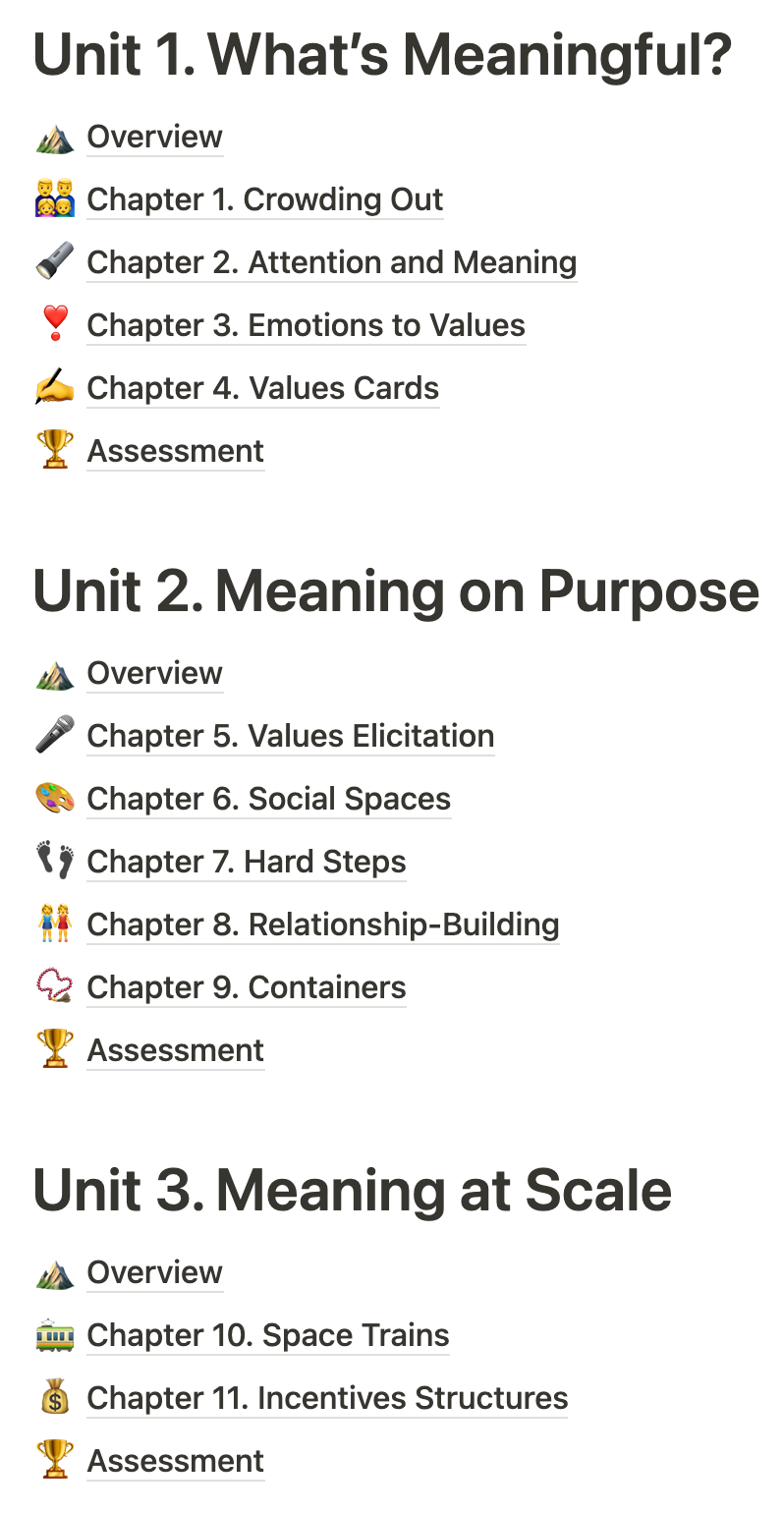How it works
We offer three courses, taken in sequence.
- In Unit 1, you develop an articulate, verifiable sense of what's meaningful for different people.
- In Units 2 and 3, you practice designing for it, first at smaller, then larger scales.
Each course is about 5 weeks, meets twice a week, is instructor-led, and takes place in groups of six.
For an overview of our curriculum, see this 1 hour video. The course textbook is also free and online.








